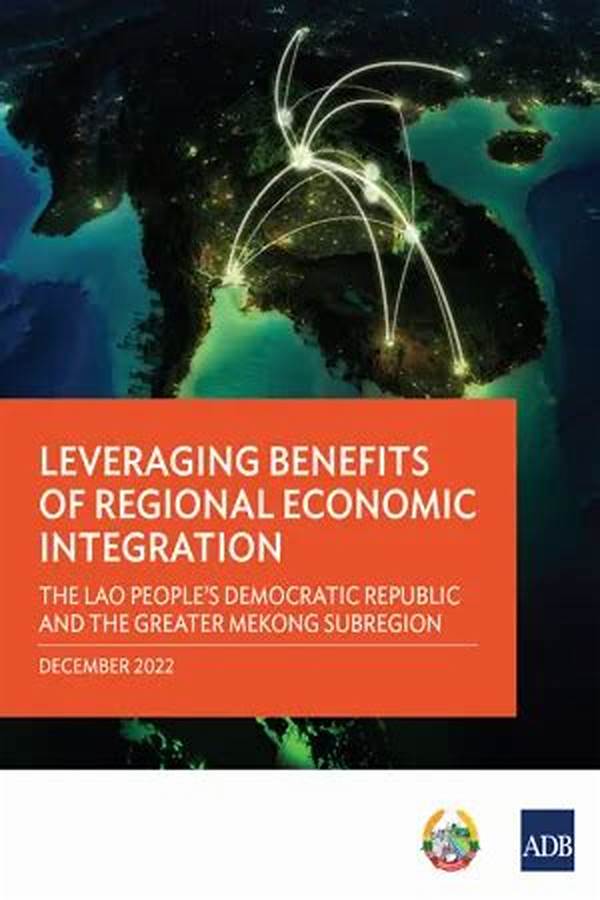Hey there! So, picture this: a world where technology is the magic potion for blending economies seamlessly across borders. Sounds intriguing, right? Well, that’s what we’re diving into today. Buckle up as we navigate the thrilling waters of leveraging technology for economic integration with a casual, laid-back vibe. Let’s explore how tech is making the global economy tighter than ever.
Read Now : Prioritizing Tasks For Productivity Improvement
How Technology Drives Economic Integration
Alright, let’s get into the nitty-gritty! Technology is like the master key that’s unlocking new opportunities for countries to collaborate more effectively in business, trade, and beyond. Imagine a scenario where trading partners can handshake virtually without the hassle of paperwork. Yep, that’s the new norm. Leveraging technology for economic integration means smoother transactions, reduced barriers, and enhanced connectivity. From e-commerce platforms making shopping a breeze to fintech innovations simplifying cross-border payments, technology is the unsung hero driving this economic unity. Our smartphones and gadgets hold the power to transcend geographical boundaries, allowing businesses and governments to engage in ways that were unimaginable a few decades ago. And let’s not forget the role of big data and AI, which crunch mountains of information to reveal insights for businesses to thrive globally.
In essence, leveraging technology for economic integration is all about breaking down barriers. It allows nations to access markets and opportunities that previously seemed out of reach. As tech continues to evolve, we’re likely to witness an even more interconnected world, where economic integration isn’t just a theory but a lived reality. Exciting times ahead!
The Tech Tools Revolutionizing Economic Integration
1. Digital Platforms: Think Amazon, Alibaba, or Etsy. Leveraging technology for economic integration, these platforms make buying and selling across borders possible.
2. Blockchain: Securing transactions and making sure everything’s legit. With blockchain, leveraging technology for economic integration becomes safe and transparent.
3. Fintech Solutions: Companies like PayPal and Stripe are bridging the gap between currencies. Fintech is at the core of leveraging technology for economic integration.
4. Artificial Intelligence: AI helps decode market trends, paving the way for smarter, tech-driven economic integration.
5. 5G Networks: Faster internet means better communication across the globe, a vital part of leveraging technology for economic integration.
The Impact of Technology on Global Trade
Let’s chat about the impact! In the world of global trade, leveraging technology for economic integration has been a total game-changer. Remember the time when international transactions took forever? Now, thanks to digital tools and platforms, businesses can transact at the speed of light. These technology solutions not only streamline processes but also cut down costs significantly – a win-win situation for all parties involved.
Moreover, technology has empowered small and medium enterprises (SMEs) to step onto the international stage. By leveling the playing field, tech provides these smaller businesses with the visibility and resources they need to compete with industry giants. Social media, e-commerce, and mobile applications play crucial roles in this transformative journey. In essence, technology is not only enhancing global trade but democratizing it. This empowerment through tech is not just a trend; it’s the future of economic integration.
Key Benefits of Leveraging Technology for Economic Integration
1. Increased Efficiency: Processes that once took days are now instant, making operations slick and smooth.
2. Reduced Costs: Tech eliminates the need for middlemen, slashing expenses significantly.
3. Global Reach: Businesses can access customers worldwide with just a few clicks.
4. Market Intelligence: Big data provides insights that were once hidden, guiding strategic decisions.
Read Now : Effective Communication In Workplace
5. Trust and Transparency: Blockchain ensures that transactions are secure and trustworthy.
6. Small Business Empowerment: Leveling the playing field, tech enables small enterprises to compete globally.
7. Real-time Communication: Technologies like 5G ensure swift, barrier-free communication.
8. Customized Experiences: AI tailors offers and suggestions, enhancing customer satisfaction.
9. Scalability: Cloud computing allows businesses to expand operations without massive overheads.
10. Innovation Boost: Tech fosters a culture of innovation, driving new solutions and economic growth.
Challenges and Opportunities in Tech-Driven Economic Integration
Alright, so we’ve sung the praises of leveraging technology for economic integration. But it’s not all rainbows and butterflies; there are challenges too. First off, the digital divide is a real issue. While some countries are riding the tech wave, others struggle with basic infrastructure. Our mission? To bridge this gap, making tech-inclusive integration a reality for all.
Additionally, cybersecurity is a hot topic. With increased digital interaction comes the heightened risk of cyber threats. But hey, every challenge is an opportunity in disguise. By advancing protective measures and fostering international collaboration on cybersecurity, we can safeguard economic transactions. Moreover, as we look ahead, there’s a treasure trove of untapped opportunities poised to reshape the economic landscape.
Emerging technologies like the Internet of Things (IoT) and machine learning could open new doors. Policymakers and businesses need to remain agile and adaptive, ready to harness these innovations. Embracing flexibility and a forward-thinking approach will keep us on track in leveraging technology for economic integration. Let’s keep the conversation going and work together towards achieving a tech-empowered global economy.
The Path Forward: Embracing Tech Integration
So, where do we go from here? The future of global economy integration is heavily reliant on our ability to continuously leverage technology in smart, sustainable ways. This means championing digital literacy and ensuring that technological advancements benefit everyone, not just a select few. It’s about creating an ecosystem where technological and economic growth go hand in hand, fostering inclusivity and equal opportunities.
Empowering emerging markets and fostering innovation are crucial steps on this path. When countries join hands, sharing resources and knowledge, we craft a global narrative of shared success. Leveraging technology for economic integration isn’t just about tech – it’s about people, collaboration, and creating a prosperous future. Let’s roll up our sleeves and embrace this tech revolution, shaping a more connected and equitable world.
